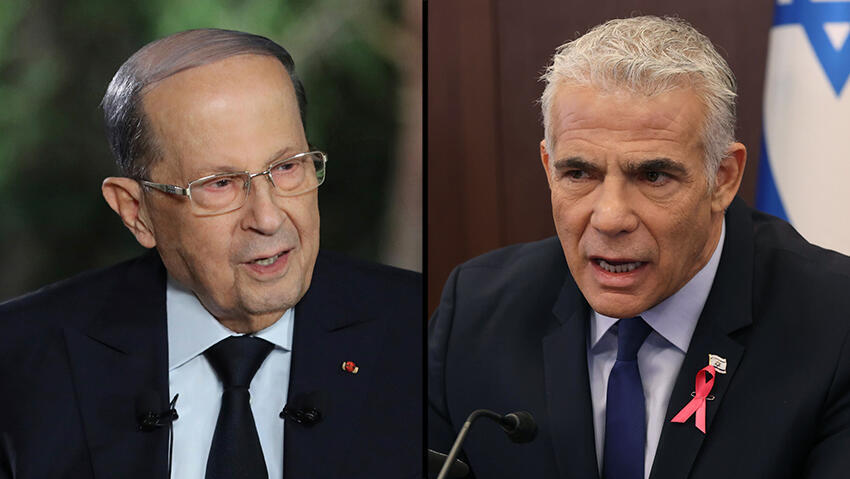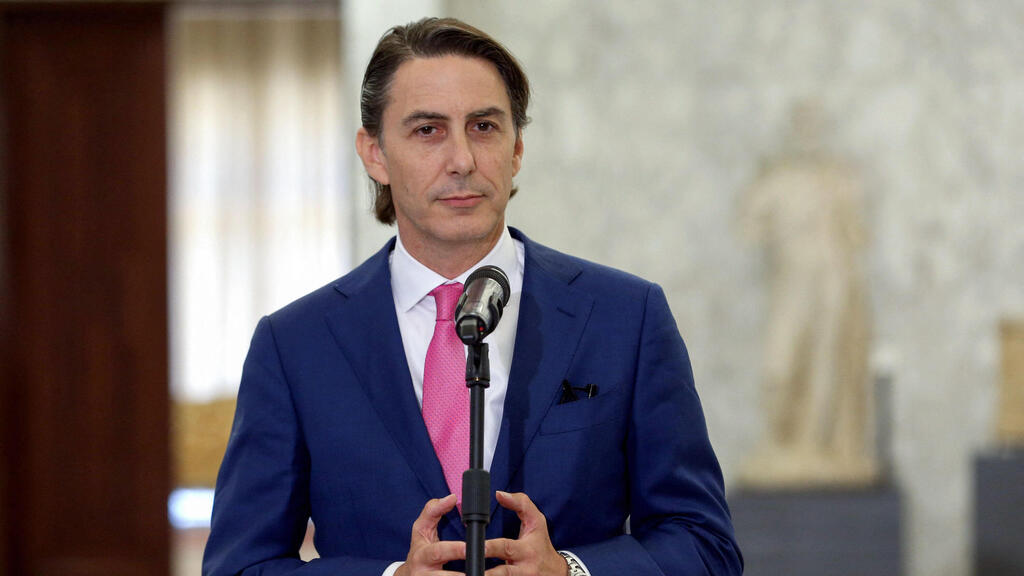A senior Israeli official said on Thursday that if Lebanon puts forward new conditions in negotiations over the maritime border deal, they may as well forget about signing the agreement.
Last week, both Beirut and Jerusalem were presented with a draft agreement drawn up by U.S. mediator to the border dispute talks, Amos Hochstein.
Lebanon on Wednesday presented new reservations to the American embassy about the deal, while the Israeli cabinet was due to discuss the deal later on Thursday.
A defense official, meanwhile, said an agreement has strategic importance for the coming years. "The importance at this time is to block the immense influence of Iran and its proxy Hezbollah over Lebanon's energy," the official said. "If you take that away from the, you have long lasting impact on other spheres of Iranian influence," he said.
"If we can finalize a deal now, we should," he said. "There is always the possibility of escalating violence and Israel is prepared for any scenario," the official said.
Prime Minister Yair Lapid and Israel's negotiating team to the talks, will present the government with the full draft of the agreement for the first time. The ministers, who last discussed terms a month ago, will not be asked to vote and the procedures for the deal's approval remained unclear. Lapid is awaiting a ruling by his attorney general on the matter.
A senior political official said that although there is a draft, it is not yet certain that the deal will be signed, after Lebanon announced it was submitting more amendments, which may constitute substantive changes.
Negotiations have a limited time to continue as Lebanese President Michel Aoun is set to leave office on October 31 and production at the Karish natural gas field is due to begin.
Israel would prefer to have an agreement signed before production at Karish begins, to deny Hezbollah an excuse to make further threats. But other officials noted that if Lebanon hardens its position, Israel will not rush to sign anything before the November 1 elections.
The Hezbollah-affiliated Al Akhbar newspaper reported earlier that among the changes proposed by Lebanon, was the removal of the term "American sanctions" from the wording of the agreement and replacing them with "international sanctions." The paper said the required change stemmed from the classification of Hezbollah as a terrorists entity by the United States but not by the UN.
"Hezbollah may be involved in the production of natural gas, therefore such a term would be unacceptable to Lebanon," the paper reported.
Al Akhbar added that the draft states that Israel "does not oppose" any steps taken in the Qana gas field, but Beirut demands the wording be changed to "Israel does not and will not oppose."
Lebanon insisted that an agreement between its government and the companies drilling in Qana cannot be subjected to earlier agreements signed by Israel with those companies.
Lebanon is also opposed to the term "financial compensation," in the draft of the agreement and insists any such deal between Israel, the drilling companies and Lebanon, which regards Israel as an enemy, would have no direct dealings with Jerusalem.
The paper said the Lebanese government objects to any contractual agreement it makes with Total Energy, to be subjected to earlier deals Israel my have with the company and prefers it to work according to Lebanon's needs, and not be bound by its contracts with Jerusalem - before drilling can begin on Lebanon's side of the maritime border.
After the Lebanese paper report, sources close to Lapid said Israel would not compromise its economic or security interests. "We are waiting to receive Lebanon's comments officially before deciding how to proceed," an official said. "It is unsure that a deal can be signed. It depends on what Lebanon has submitted," he said.
Lapid may also be prevented from signing an agreement in the maritime border dispute, after he and his Alternate Prime Minister Naftali Bennett agreed the latter can veto such a deal.
The former prime minister reportedly was in consultation with professional experts and political advisors to study the draft proposal. He believes that an agreement between Israel and Lebanon should be reached but it must be one with positive political, economic and security implications for Israel.
He said that he too, was awaiting the attorney general's decision and a Supreme Court ruling on the authority the government had to sign such a deal before the elections.




